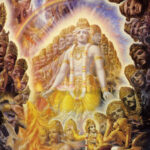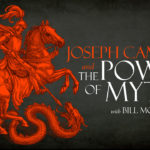“One should forgive under any injury,” says the Mahabharata, “It hath been said that the continuation of the species is due to man’s being forgiving. Forgiveness is holiness; by forgiveness the universe is held together. Forgiveness is the might of the mighty; forgiveness is the sacrifice; forgiveness is quite of mind. Forgiveness and gentleness are the qualities of the Self-possessed. They represent eternal virtue.”
Nonviolence is the natural outgrowth of the law of forgiveness and love. “If loss of life becomes necessary in a righteous battle,” Gandhi proclaims, “one should be prepared, like Jesus, to shed his own, not others’, blood. Eventually there will be less blood spilt in the world.”
Epics shall someday be written on the Indian satyagrahis who withstood hate with love, violence with non-violence, who allowed themselves to be mercilessly slaughtered rather than bear arms. The result on certain historic occasions was that opponents threw down their guns and fled – shamed, shaken to their depths by the sight of men who valued the lives or others above their own.
“I would wait, if need be for ages,” Gandhi says, “rather than seek the freedom of my country through bloody means.” The Bible warns us: “All they that take the sword shall perish with the sword.”* The Mahatma has written: I call myself a nationalist, but my nationalism is as broad as the universe. It includes in its sweep all the nations of the earth.** My nationalism includes a well-being of the whole world. I do not want my India to rise on the ashes of other nations. I do not want India to exploit a single human being. I want India to be strong in order that she can infect the other nations also with her strength. Not so with a single nation in Europe today; they do not give strength to the others. President Wilson mentioned his beautiful fourteen points, but said: “After all, if this endeavor or ours to arrive at peace fails, we have our armaments to fall back upon.” I want to reverse that position, and I say: “Our armaments have failed already. Let us now be in search of something new; let us try the force of love and God which is truth.” When we have got that, we shall want nothing else.
(*Matthew 26:52. This is one of numerous passages in the Bible that necessarily imply the reincarnation of man. Many of life’s complexities are explicable only through an understanding of the karmic law of justice.)
(** “Let not a man glory in this, that he love his country; Let him rather glory in this, that he love his kind.” – Persian Proverb)
Amazon #ads

💌 Monthly email summary of all my posts!
☕ Buy me a Coffee ▶️ YouTube 👍 Facebook
👕 My Merch (I can create custom designs for you too)
🎥 Filming Equipment
By the Mahatma’s training of thousands of true satyagrahis (those who have taken the eleven rigorous vows mentioned in the first part of this chapter), who in turn spread the message; by patiently educating the Indian masses to understand the spiritual and eventually material benefits of nonviolence; by arming his people with nonviolent weapons – noncooperation with injustice, the willingness to endure indignities, prison, death itself rather than resort to arms; by enlisting world sympathy through countless examples of heroic martyrdom among satyagrahis, Gandhi has dramatically portrayed the practical nature of nonviolence, its solemn power to settle disputes without war.
The Mahatma is indeed a “great soul,” but it was illiterate millions who had the discernment to bestow the title. This gentle prophet is honored in his own land. The lowly peasant has been able to rise to Gandhi’s high challenge. The Mahatma wholeheartedly believes in the inherent nobility of man. The inevitable failures have never disillusioned him. “Even if the opponent plays him false twenty times,” he writes, “the satyagrahi is ready to trust him the twenty-first time, for an implicit trust in human nature is the very essence of the creed.”***
(***”Then came Peter to him and said, Lord, how oft shall my brother sin against me, and I forgive him? Till seven times? Jesus saith unto him, I say not unto thee, Until seven times: but, Until seventy times seven.” – Matthew 18:21-22. I prayed deeply to understand this uncompromising counsel. “Lord,” I protested, “is it possible?” When the Divine Voice finally responded, It brought a humbling flood of light: How many times, O Man, do I forgive each of you daily?”)
“Mahatmaji, you are an exceptional man. You must not expect the world to act as you do.” A critic once made this observation. “It is curious how we delude ourselves, fancying that the body can be improved, but that it is impossible to evoke the hidden powers of the soul,” Gandhi replied. “I am engaged in trying to show that if I have any of those powers, I am as frail a mortal as any of us and that I never had anything extraordinary about me nor have I now. I am a simple individual liable to err like any other fellow mortal. I own, however, that I have enough humility to confess my errors and to retrace my steps. I own that I have an immovable faith in God and His goodness, and an unconsumable passion for truth and love. But is that not what every person has latent in him?” He added: “If we may make new discoveries and inventions in the phenomenal world, must we declare our bankruptcy in the spiritual domain? Is it impossible to multiply the exceptions so as to make them the rule? Must man always be brute first and man after, if at all?




